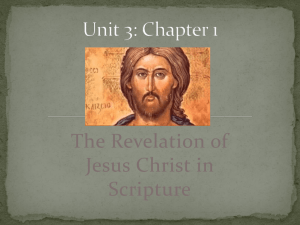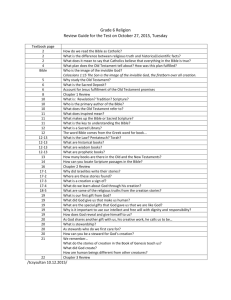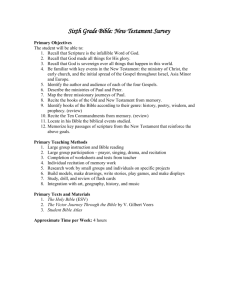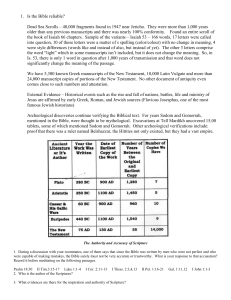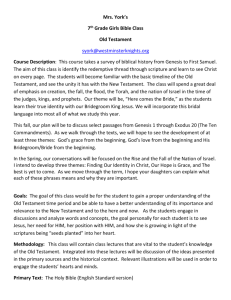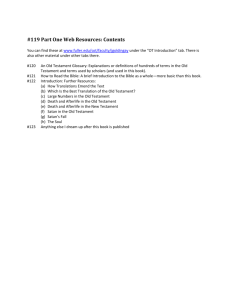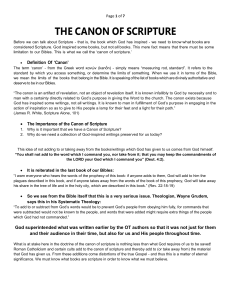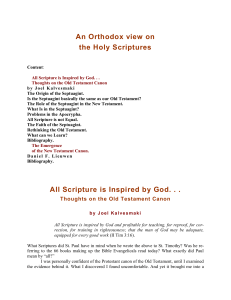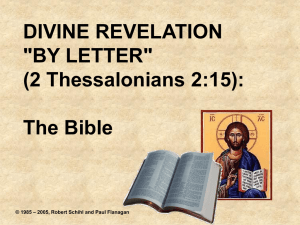Sermon Notes
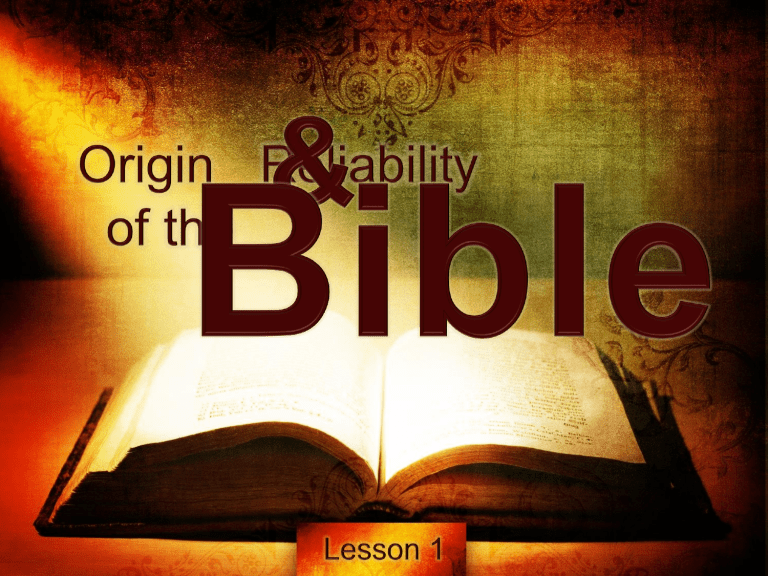
Questions
• What belongs in the Bible and what does not belong?
• How can we know that we have the right books in our Bible?
• How did certain documents, and these only, come to receive this recognition?
• Who, if any one, decided that these, and no others, should be admitted to the list of the holy Scriptures, and what were the criteria which influenced this decision?
• I.e., what was the process by which they were brought together? And why should the results of that process be considered normative for the modern church.
Questions
• How do we know it includes these 27 NT books and no more or less?
• On what basis can Christians have confidence that they have the right books in the Bible?
• What are we to make of disputes within the early church over some of these books?
• What about the abundance of apocryphal literature that has been discovered?
• And what would we do if we discovered a lost epistle of Paul?
Implications
• If we can’t answer these questions, on what grounds can we ever appeal to the
content of the Bible?
• The words of Scripture are the words by which we nourish our spiritual lives.
• “For it is not a vain thing for you; because it is your life...” (Deut 32:47).
Implications
• To add to or subtract from God’s words would be to prevent God’s people from obeying Him fully.
• “Ye shall not add unto the word which I command you, neither shall ye diminish ought from it, that ye may keep the commandments of the LORD your God which I command you. (Deu 4:2)
Sources
• Bruce, F. F. The Canon of Scripture.
Downers Grove: IVP, 1988.
• Grudem, Wayne. “The Canon of
Scripture.” Systematic Theology. Grand
Rapids: Zondervan, 1994.
• Kruger, Michael J. Canon Revisited:
Establishing the Origins and Authority
of the New Testament Books. Wheaton:
Crossway, 2012.
• Michaeljkruger.com
Meaning of Canon
• List of books contained in the Bible.
• From kanōn (Gk): Straight rod used as a rule
• “Rule” or “standard” “rule of faith/truth”
• Canon as the rule of belief and practice
• Christians as “people of the Book”
• The “Book” has a regulative function: conformity to what the book prescribes is a major test of loyalty to religious faith and practice.
The Two Testaments
• Testament: diathēkē (Gk) a will, settlement, agreement usually between a superior party to an inferior.
• The superior party confers certain privileges on an inferior.
• The inferior undertakes certain obligations towards the superior.
• Covenant: agreement between God and man.
The Two Testaments
• Old Covenant
– Made the divine will known
– But did not impart power to carry it out
– Therefore the people broken the covenant
• New Covenant
– Not only the desire but power to do the will of God
– His law would be put within them and written on their hearts
The Two Testaments
• Both these covenants launched a great spiritual movement.
• Each of these movements gave rise to a special body of literature.
• Old Covenant (Testament)
• New Covenant (Testament)
A Closed Canon
• ‘Ye shall not add … neither shall ye diminish from it’
• ‘For I testify unto every man that heareth the words of the prophecy of this book,
If any man shall add unto these things,
God shall add unto him the plagues that are written in this book. And if any man shall take away from the words of the book of this prophecy, God shall take away his part out of the book of life, and out of the holy city, and from the things which are written in this book’ (Rev. 22:18-19).
Old Testament
A. Moses
– The Ten Commandments formed the beginning of the Biblical canon.
– Exo 21:18; 32:16; Deut 4:13; 10:4
– The tablets were deposited in the ark of the covenant (Deut 10:5).
– These words grew in size throughout time.
– Moses wrote additional words (Deut 31:24-
26).
– Exo 17:14; 24:4; 34:27; Num 33:2;
Deut 31:22
Old Testament
B. Joshua
– He added to the collection of the written words of God (Josh 24:26).
– God authorized such additional writings.
C. Prophets
– Samuel (1 Sam 10:25; 1 Chron 29:29)
– Jehu (2 Chron 20:34, cf. 1 Kings 16:7)
– Isaiah (2 Chron 32:32)
– Jeremiah (30:2)
Old Testament
D. History
– Ezra at Jerusalem in 458 B.C.
– Nehemiah at Jerusalem from 445-433 B.C.
– Esther written after death of Ahasuerus in 465 B.C.
– Thus after 435 B.C. there was no further addition to the OT canon.
Old Testament
E. Non-Inspired Jewish Literature
1. Maccabees
2. Josephus (born c. A.D. 37 or 38)
3. Rabbinical Literature
4. Qumran Community
F. New Testament
– Jesus and NT authors quote various parts of OT Scriptures as divinely authoritative over 295 times
Apocryphal Books
• Reasons Why These Should Not Be
Regarded as Inspired Scripture:
1. They were not accepted by the Jews or Early Church Fathers as Scripture
2. They contain teachings inconsistent with the rest of the Bible.
3. They do not claim for themselves the same kind of authority as the OT writings.
4. They were not considered to be Scripture by Jesus or the NT authors.
